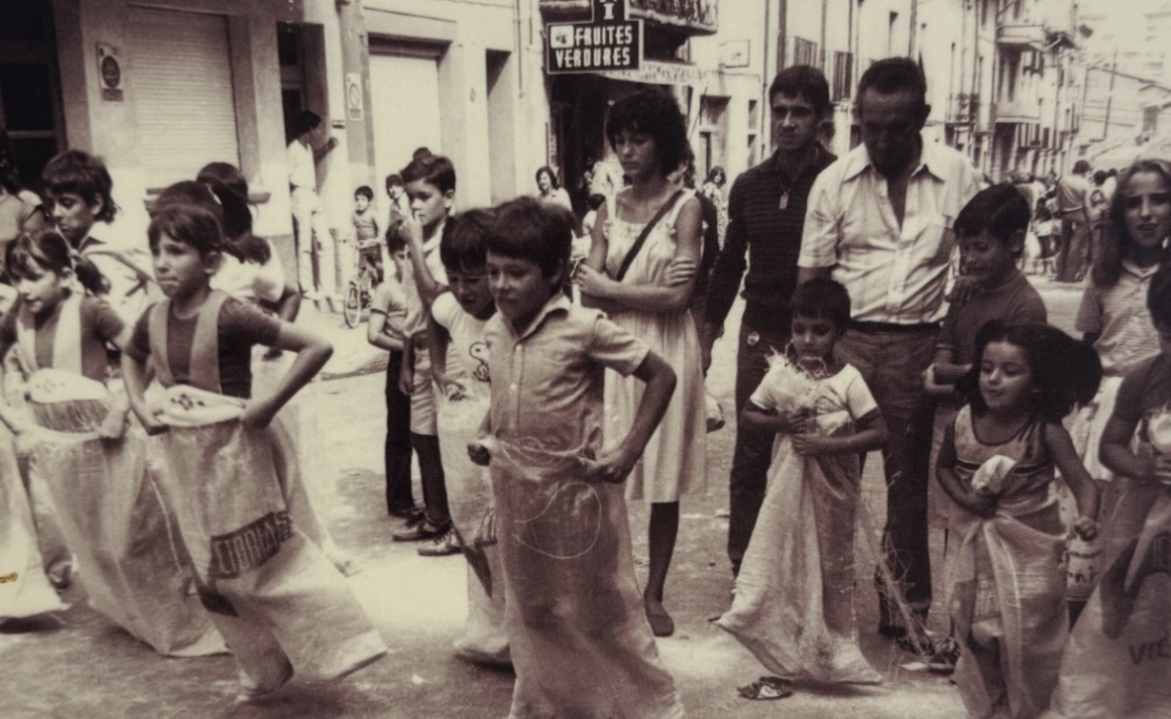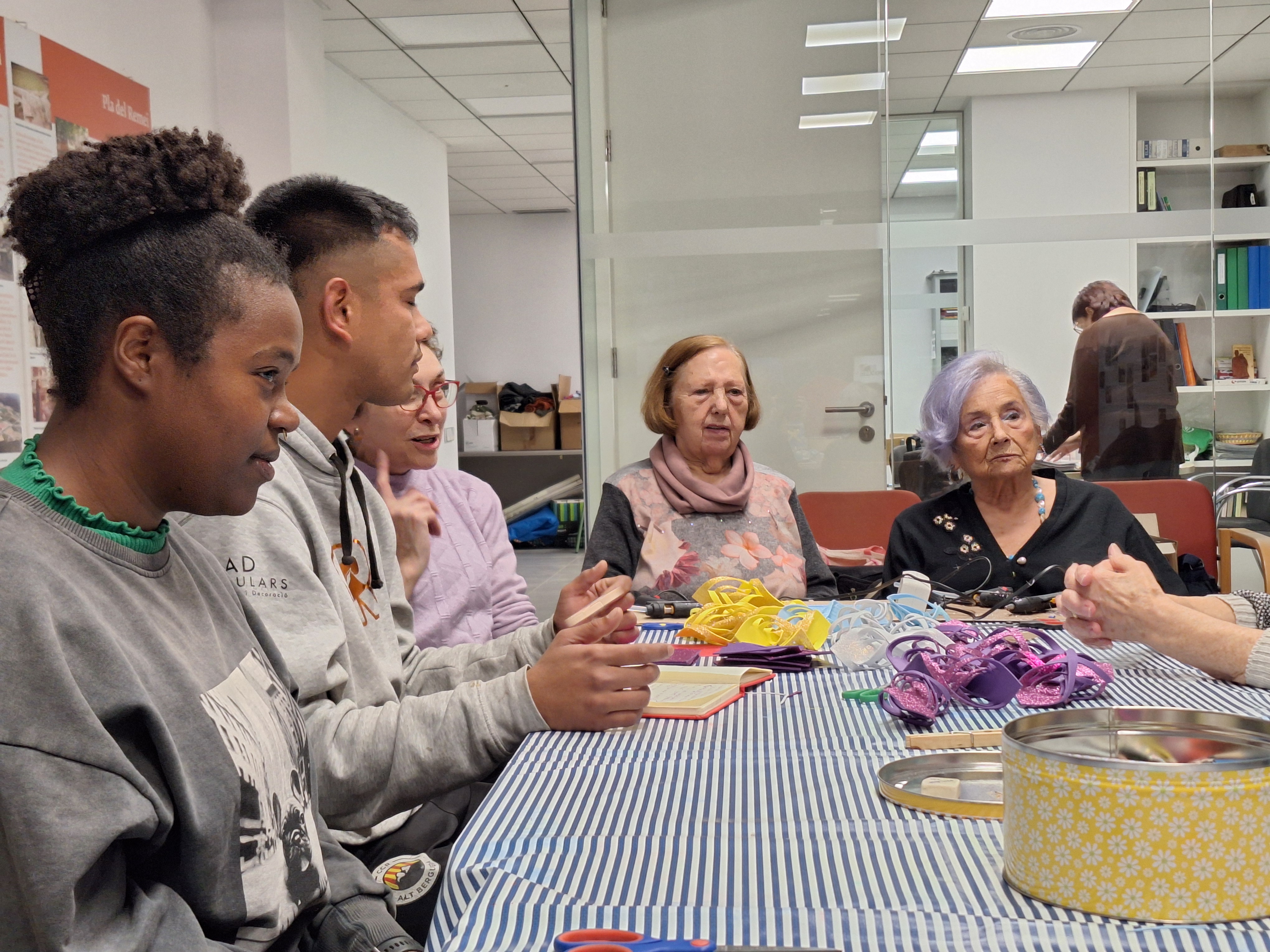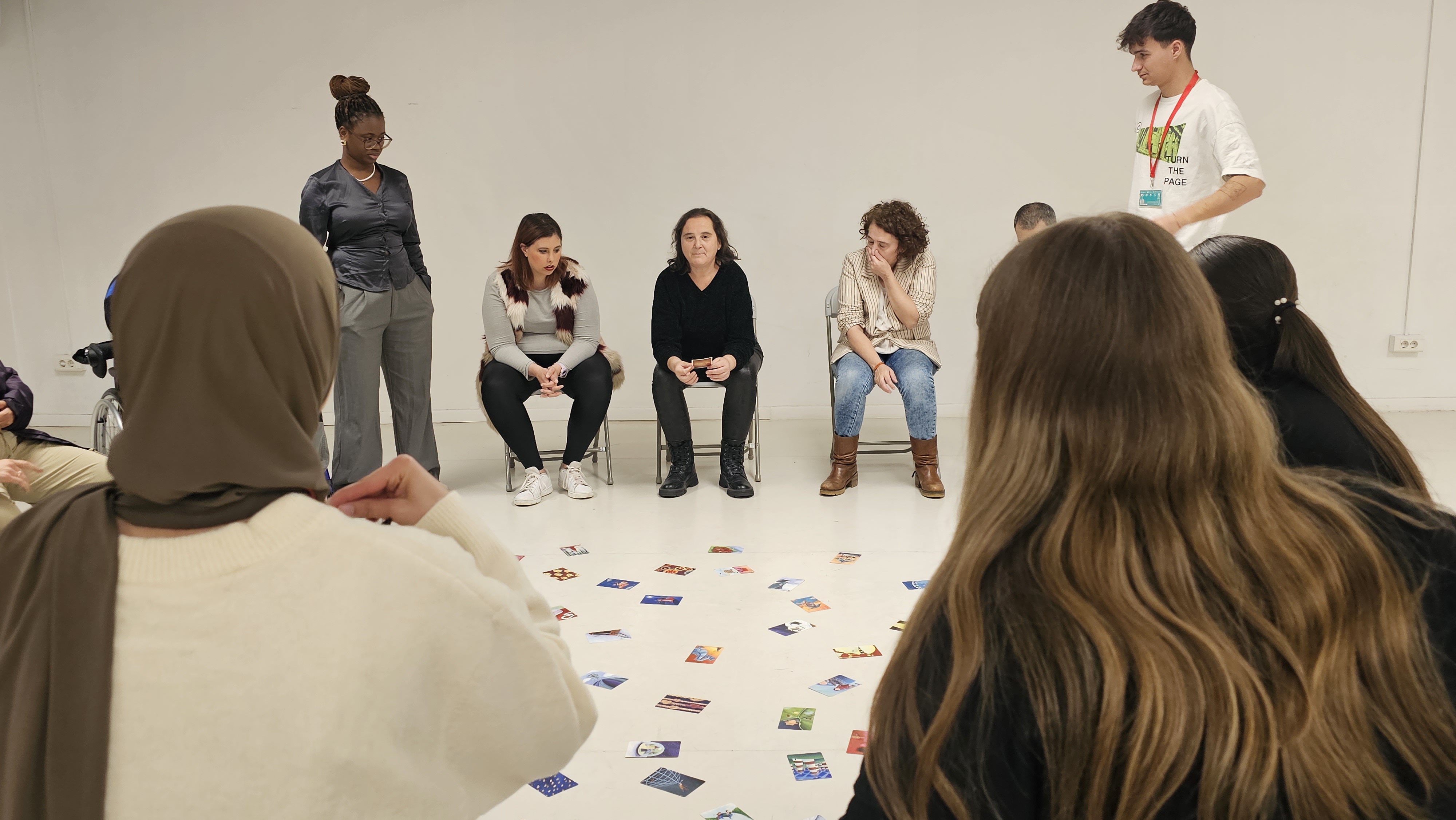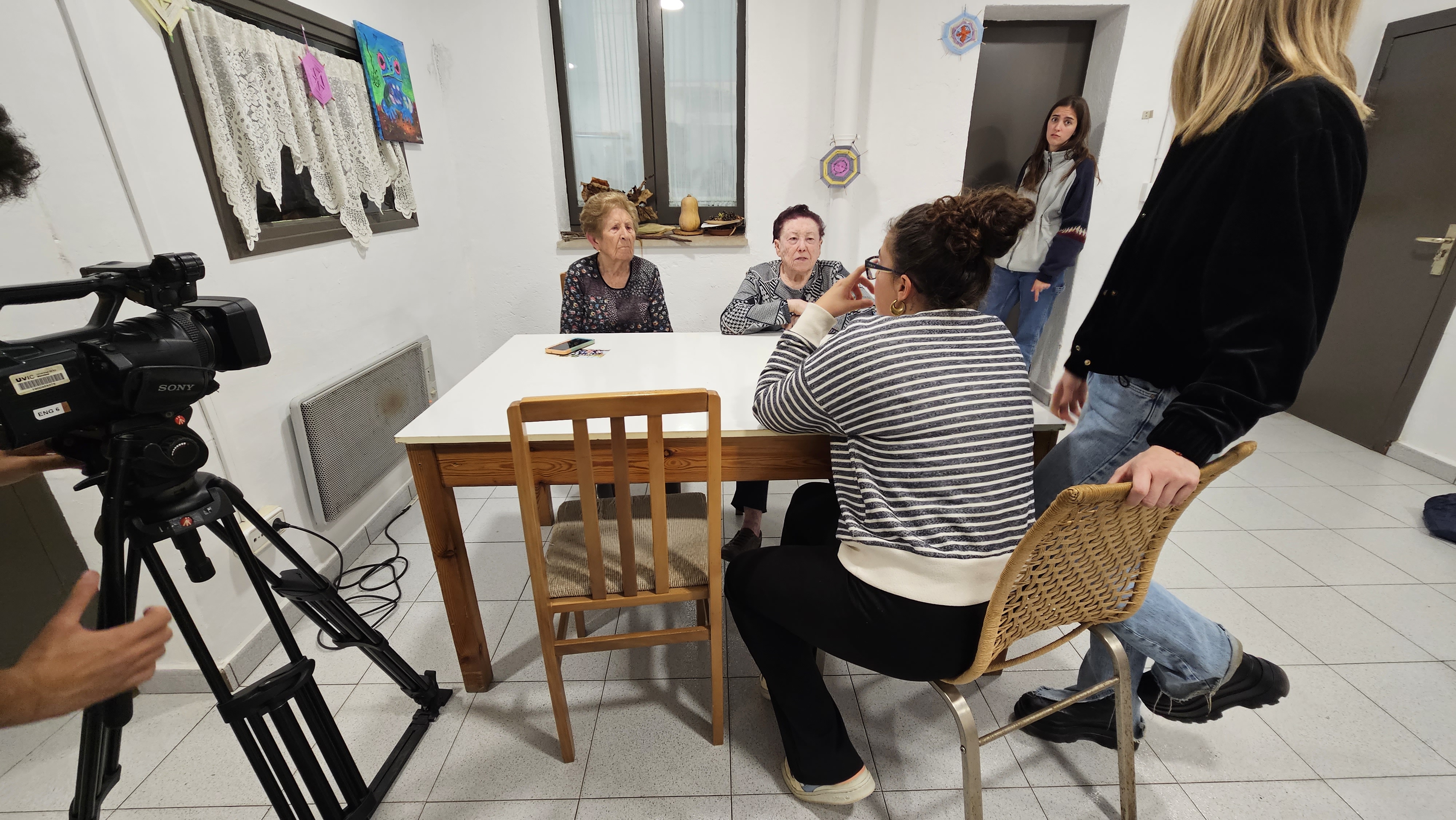Project Description
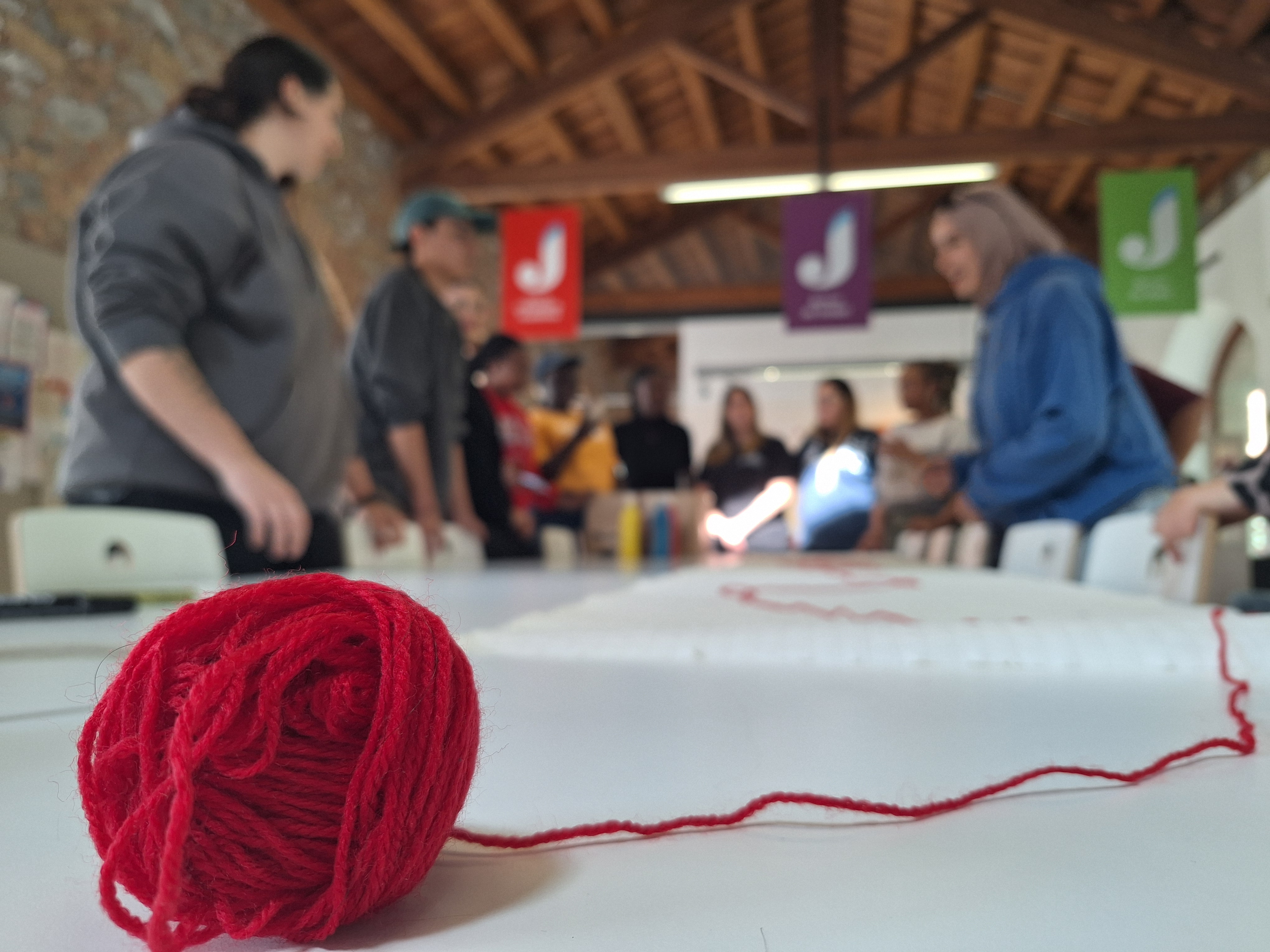
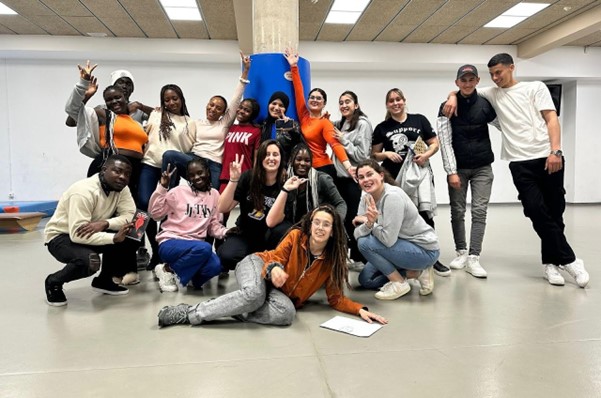
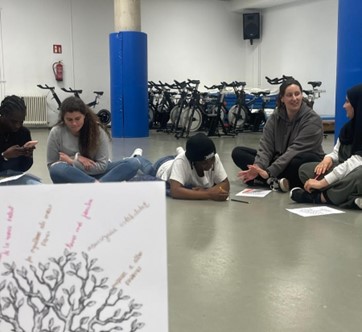
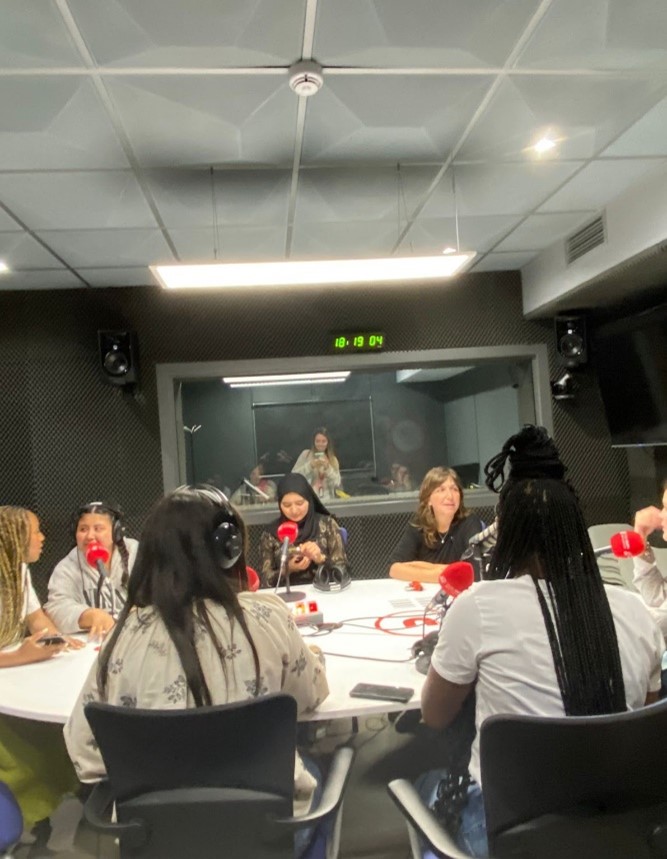
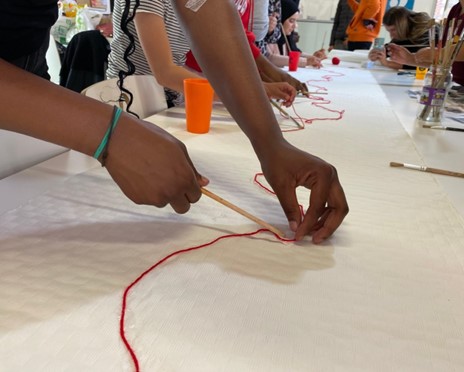
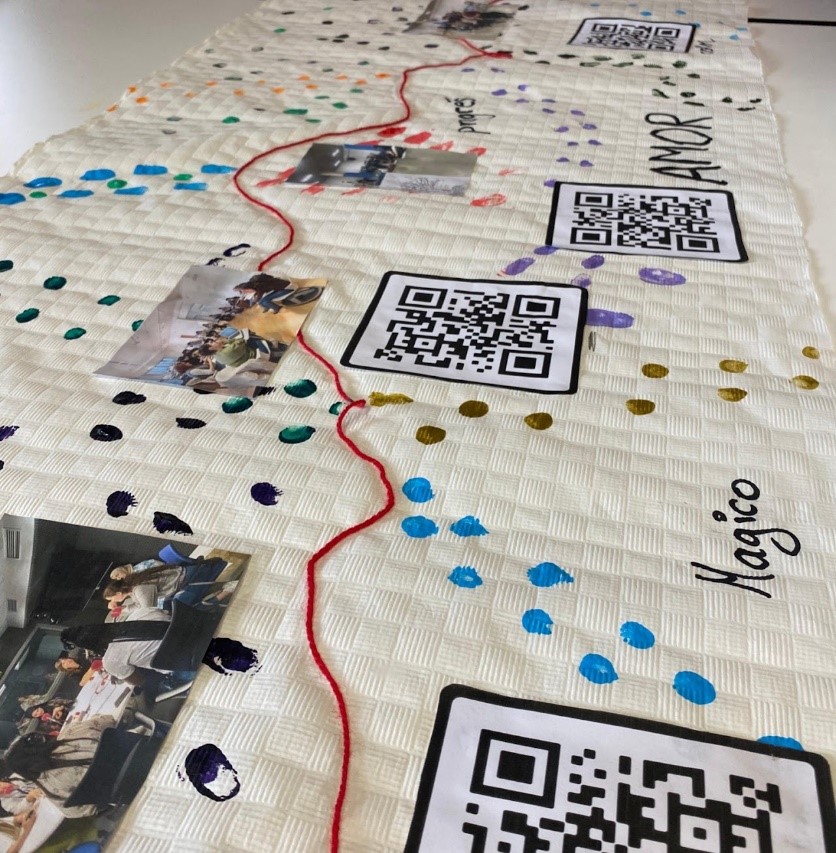
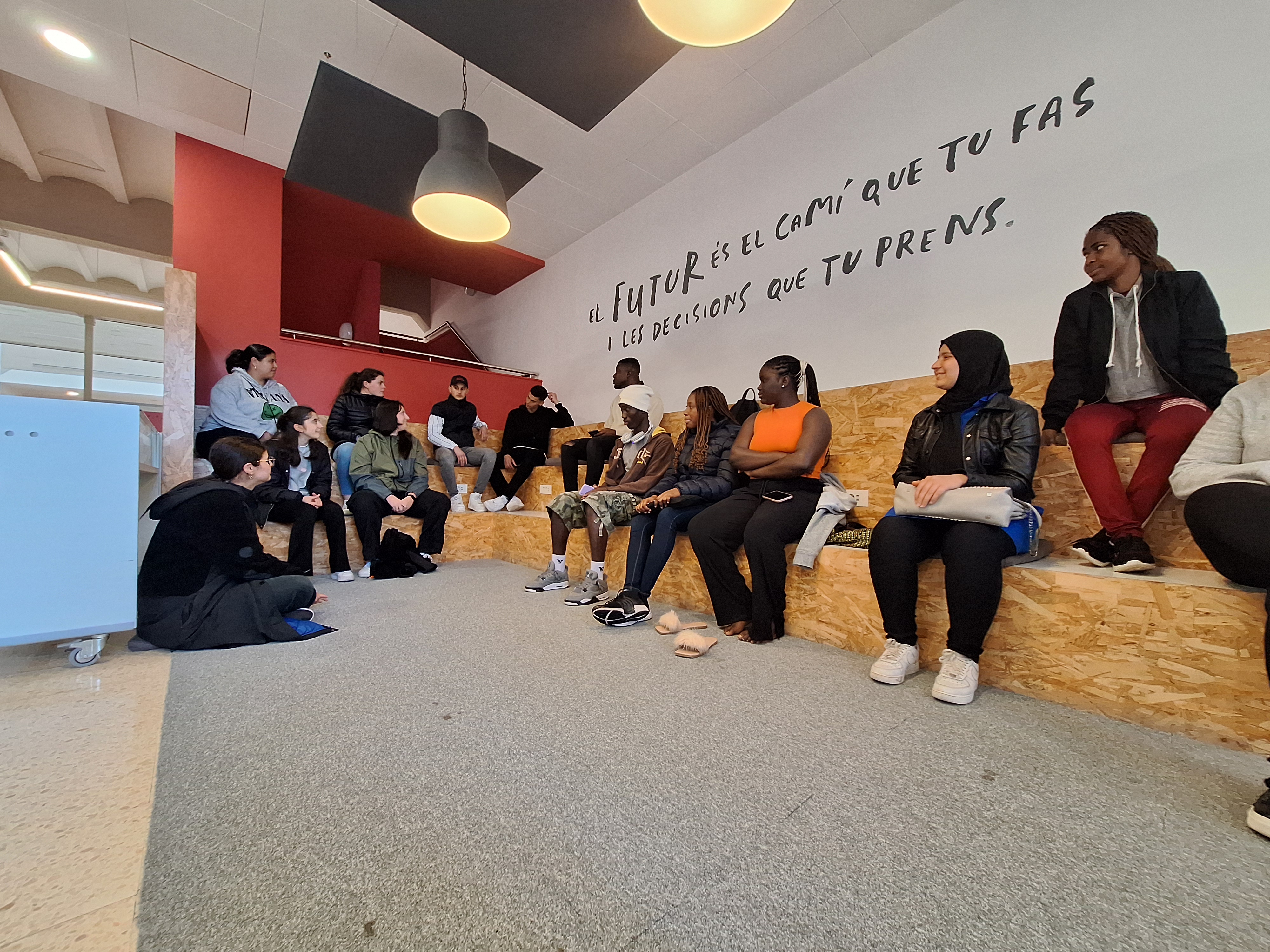
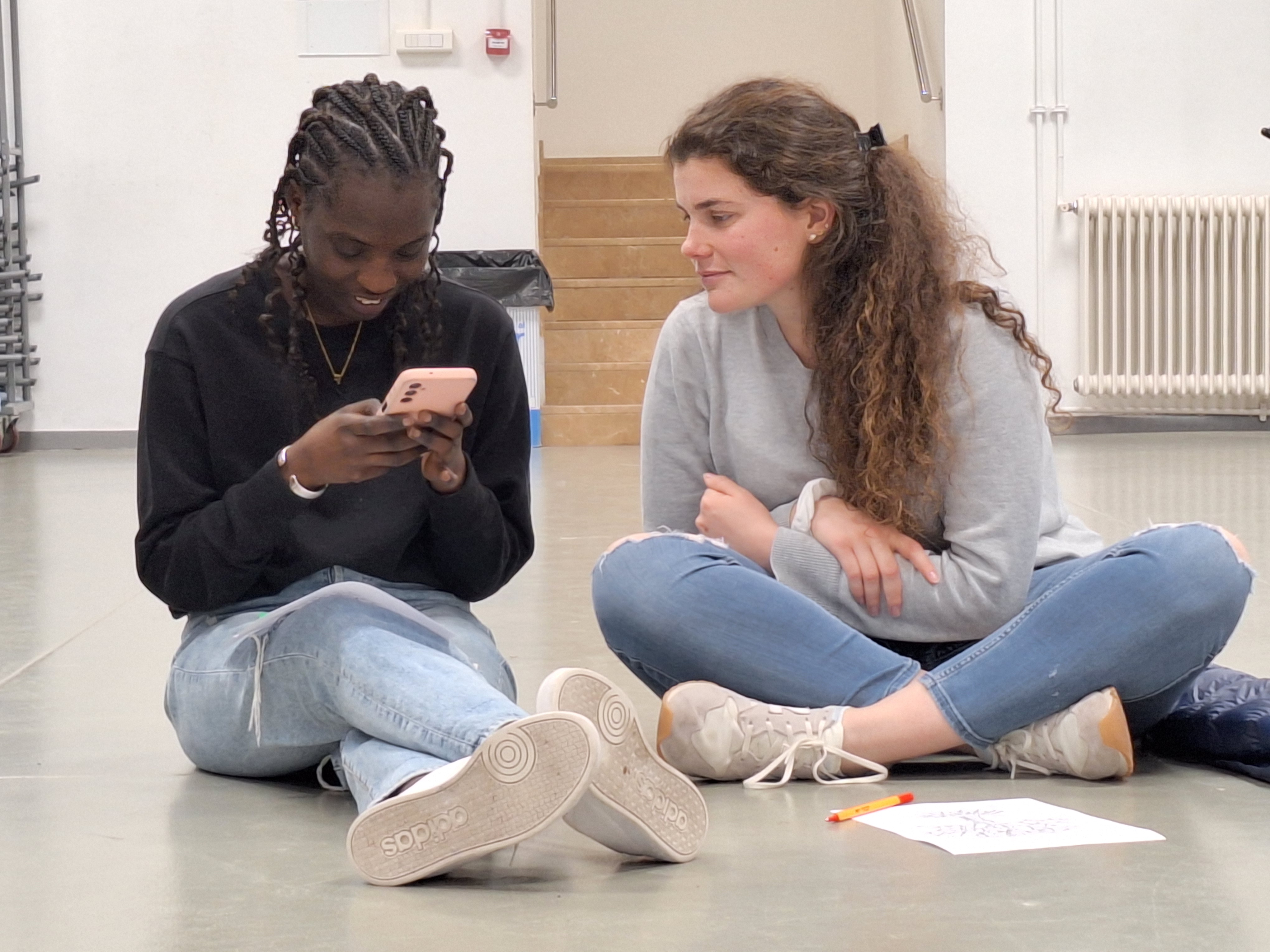
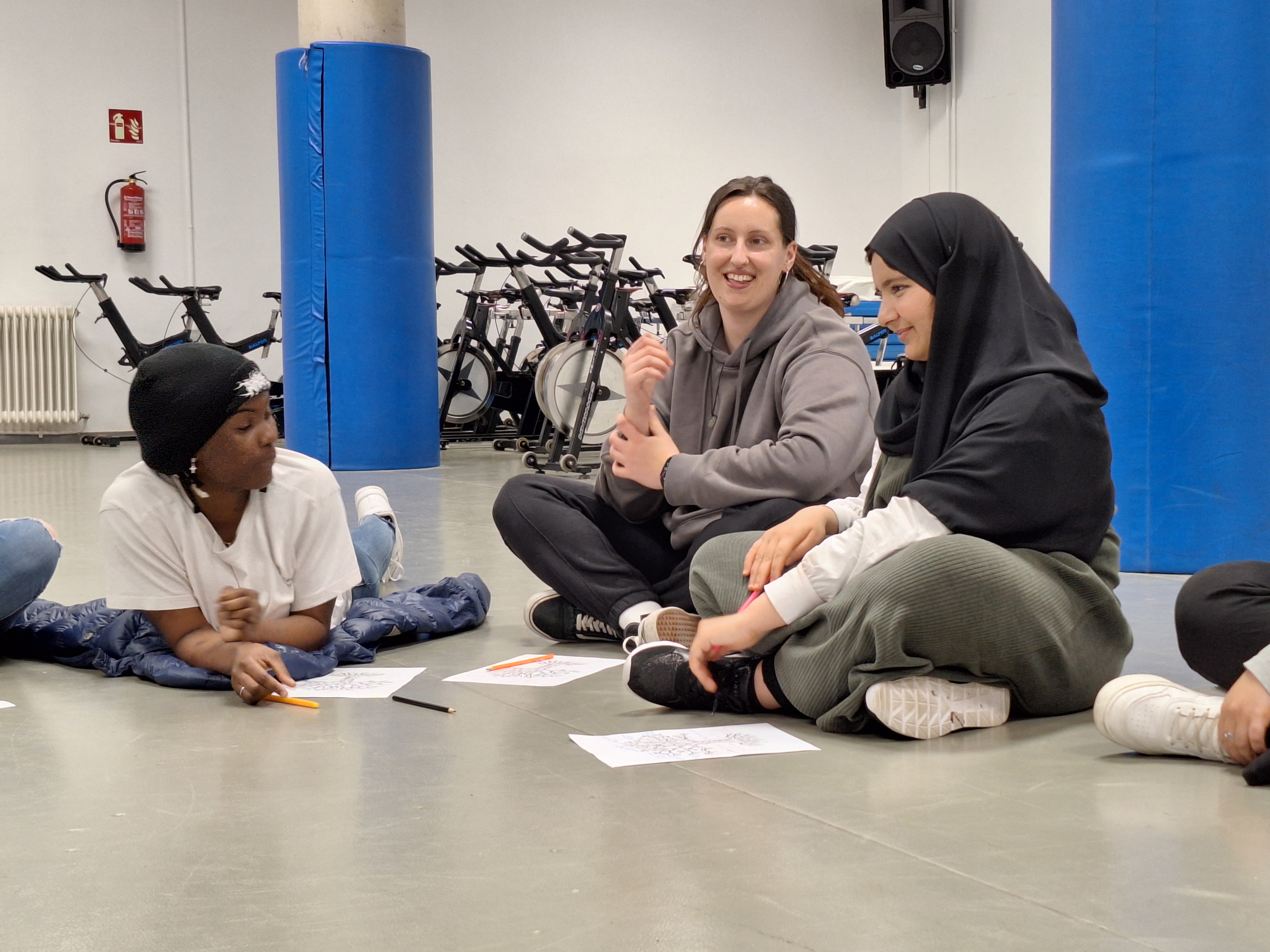

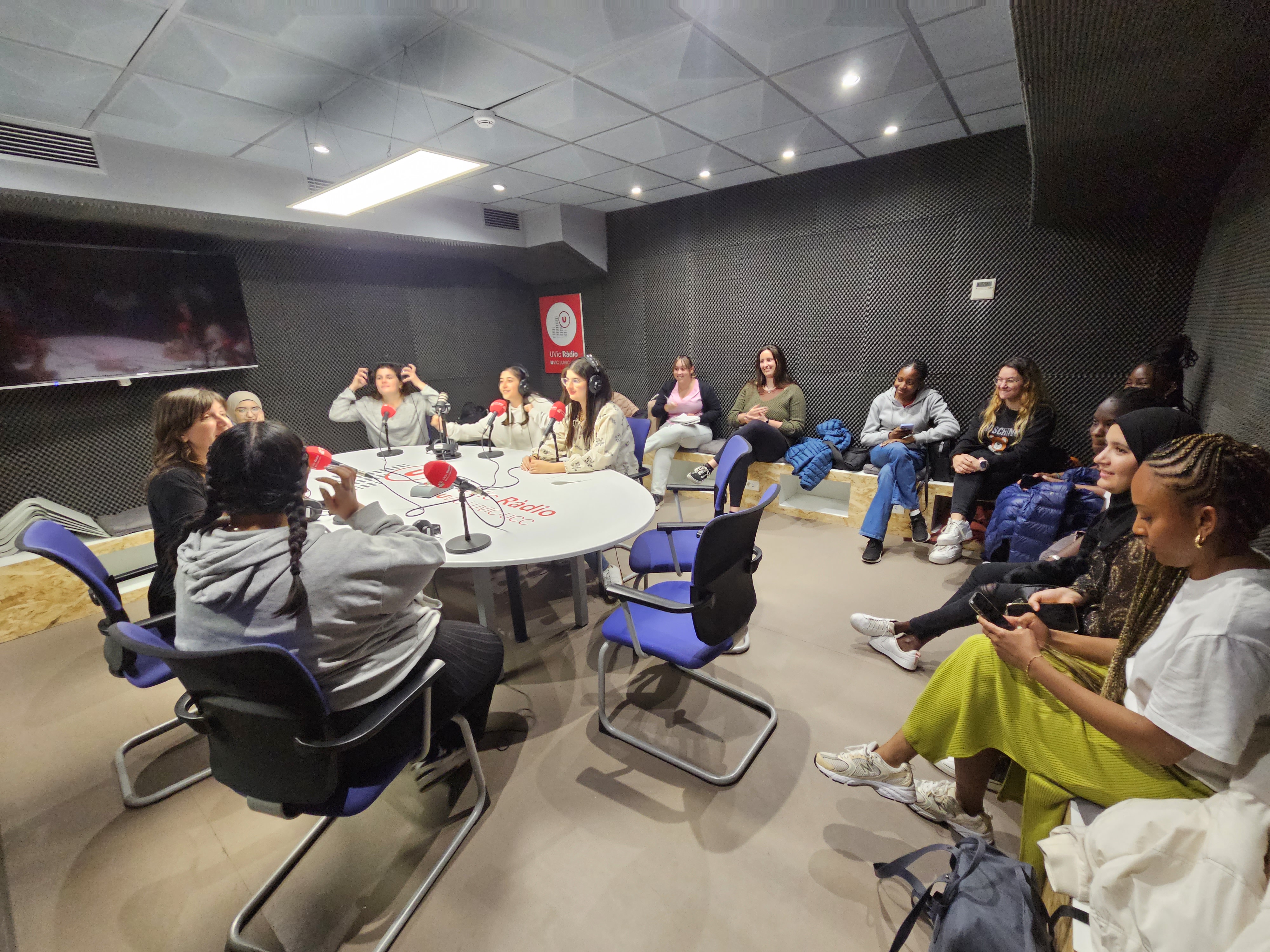
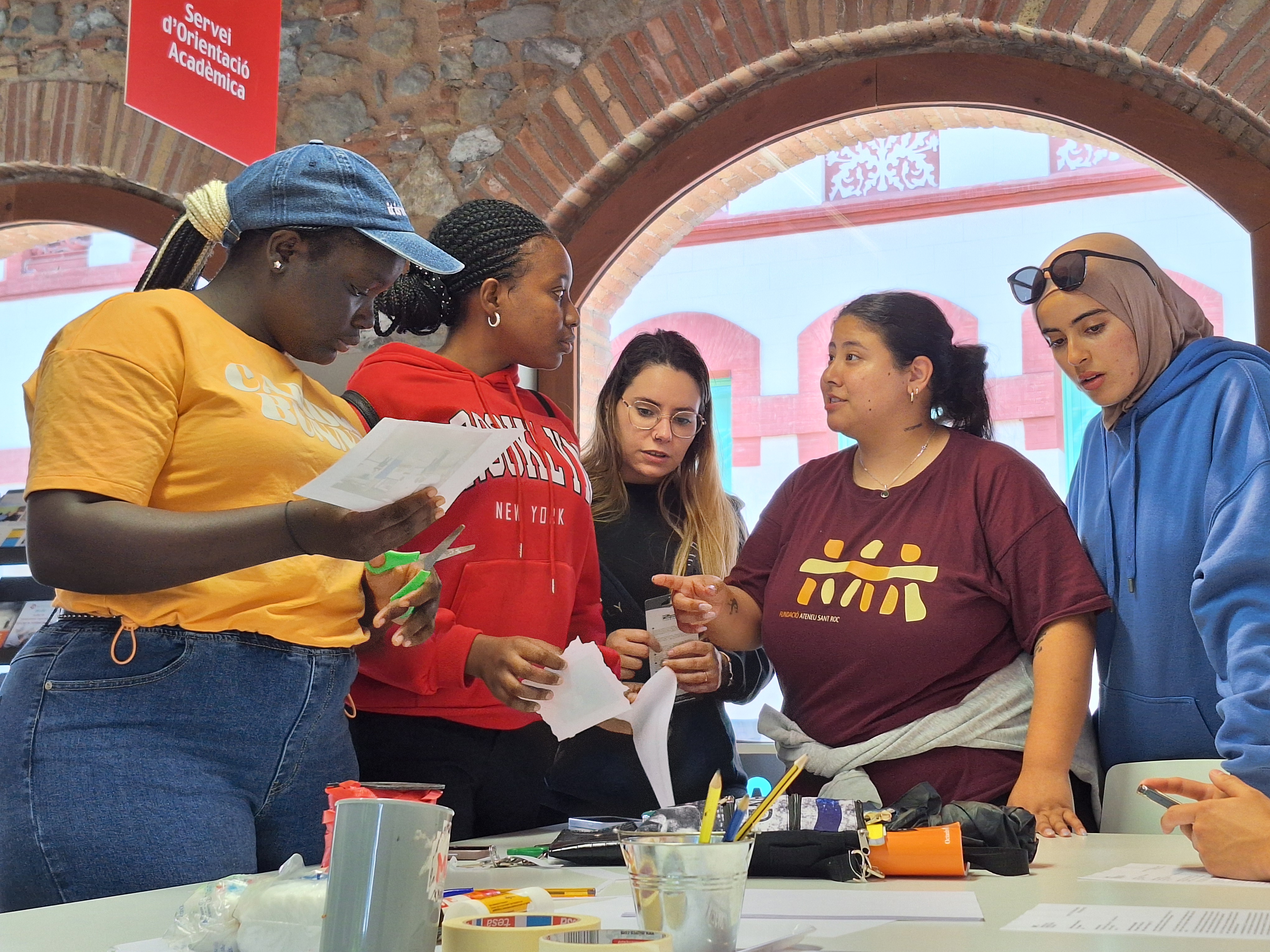
Type of project
Learning-Service
Course
2023-2024
Studies
Social Projects and ICT. 3rd course Degree in Social Education
Successful trajectories
Participating entity: Vic Jove
Description of L-S
What is success? Money makes happiness? When will I have succeeded? The sociodigital proposal seeks to make visible the success stories of the young participants to inspire and motivate others in similar situations, using digital tools to share and disseminate these stories of success. Thus, the link between the proposal and the needs of the target audience is based on the creation of a space where the young people themselves can be the protagonists of their stories and find support for their integration and personal development.
Participants: social educators and fifteen young participants in the “9 a Vic” program of the Vicjove organization, aged between 16 and 21 and from various cultural backgrounds.
Objectives:
- Participate in the presentation of the life trajectories of young people.
- Raise awareness of the life process of themselves and others.
- Reflect on the concept of success.
- To make visible several referents on success.
- Creation of an interactive mural.
Reflections of UVic students
- We have approached everyone with tact, as well as we have adapted to all profiles to meet their needs: we have translated the explanations and content to those young people who had greater difficulties in understanding the language, we have approached each one of them personally… We have also given space for the young people to say theirs and to contribute their vision and decision to the project (which is why we had to modify it towards the end).
- During the project we realized that the female gender predominated over the male and that, as the sessions progressed, the participation of boys decreased. Therefore, we tried to encourage their attendance by encouraging them to continue coming, asking the VicJove social educators to remind them… In addition, in the writing and communication of the project we have taken into account the use of vocabulary to be as inclusive as possible, taking into account the gender perspective.
- We organized ourselves through several sessions. Every Tuesday we had a new session with the youth, and on Thursdays we met to plan the next Tuesday’s session and share observations from the previous session. Thanks to this organization, we were able to carry out the project with satisfaction and without worrying about whether we would have time to finish everything we had planned.
- From the beginning we have organized ourselves by commissions and in a democratic way, deciding the most important aspects of the work and, in order to be more effective, taking charge in pairs or trios of what was decided in the large group. On Thursdays we have planned, we have been in charge of organizing the intervention sessions taking into account what was happening the rest of the weeks.
- We decided as a group, that the sessions would be more dynamic and about the knowledge of the group to more introductory on the subject, to create relationships and space for trust.
- We were able to have a debate on the regularization of young people. We discussed the profile of the young people with whom we will implement the project. The issue of whether the young people we will serve have just arrived in the territory, this means that they are not studying formal education, but it can also be that they are in black jobs, this has made us broaden the questions from an open view with different contributions from the group. This process has been very enriching and at the same time has created many expectations, questions and intrigue to develop this project. Even so, we have come to the conclusion that the context of the young people was necessary, but that more personal aspects about their regularization, family situation… perhaps it was not something that defined the young people and affected our project.
- Playful activities, such as “the gunman”, were essential to strengthen the bond with the young people, breaking the ice and facilitating the first contact prior to the memorization of names. The participatory interaction created an atmosphere of camaraderie and cohesion. The young people expressed their gratitude and enthusiasm to start this project with us, showing their willingness to learn and participate to the fullest. This response was important, as it represented the first impressions and the impact that a warm and very organized welcome can have. In addition, we took into account the language barrier when thinking about the activities because we did not know the level of Catalan and/or Spanish of the participants, as well as their level of understanding and participation.
- All the members of the group were very happy with the session. In spite of not being able to carry out all the dynamics that we wanted to, due to the fact that we did not take into account that the young people might not arrive on time (something that we will take into account for future sessions), we had the feeling that the interactions and dynamics flowed well and we were able to make a first step forward to begin to create a bond with the young people.
- We will try to speak vocalizing and with a slow and understanding rhythm. As we are many future social educators, we can afford that one of us (or several) will be translating or repeating again the explanations in a more individualized way for those people who have more difficulties, since the language barrier is something that can make it difficult for us in this project. In the first session we were able to see this. Although there were people who had a good level of understanding, there were others who did not. The group is very diverse in this respect.
- What we have been able to observe is that there are different complexities that can arise when working with young people, especially when there are linguistic diversities. One of the first challenges we addressed was the participation of all the young people. Starting the session with icebreaker exercises was a very good idea, since it allowed the integration of a new young person who had not attended another session. When it was time to do the dynamics of reflection on migration and their dreams, we encountered obstacles with the language differences. Even so, we did our part, translating with the translator or a colleague who knows the language, we were able to help them carry out the dynamics. After the young people were able to reflect, it was time to put it in common with the dynamic of the ball of wool, this is where we could really observe the relevance of this language barrier and we could be aware of the individual differences in the processes of reflection and expression of each young person.
- Today’s session was a learning experience. As soon as we arrived at the classroom, our teacher sent us a voice message from the project’s educators, who had been present last Tuesday at the session with the young people. The audio made us a constructive criticism about the speech of some of the colleagues, at some moments we spoke with a faster and less understandable rhythm for the young people and this is something that we must always keep in mind when interacting with the group. We have also been told to reformulate the project and to focus on the success of someone external instead of personal success. Regarding this point, we fully understand that the young people, due to cultural or personality issues, may not have normalized, are not prepared or do not want to share some more introspective aspects of their lives. Even so, our proposal from the beginning was focused in a more personal way to make the young people see that success could be understood and seen in many ways and that they could have it in front of them. The educators always gave us the go-ahead, but now, they saw that it was better to deal with the topic of success trajectories in a more distant way. It is true that we can think and carry out a project and then find ourselves with a totally different reality (as has happened to us and will continue to happen in the future) but, knowing that they had liked the main idea, we had understood that they had done this work of previous analysis to know if the young people were really willing to carry out a project of this type and, if not, to rethink the project from the beginning and not two sessions after finishing it.
- The field diary has been a very useful tool to record and reflect on the process of working with the young people of “9 a Vic”. We found it very convenient to start the sessions establishing connections with the young people, this allowed us to get to know each other better and to know their expectations about this project.
- The interviews and discussions we prepared and conducted helped us to identify and address the challenges of the project. The process of critical reflection and discussion was very important to clearly define the objectives and establish effective strategies to achieve them. The combination of personal knowledge activities with theoretical sessions on success stories, visual recreational activities such as the board game “Dixit” that allowed us to play through an image which they chose and could relate what a success story was from their own journey. This was carried out in small groups and was a successful methodology. This balanced approach allowed the young people to actively participate and better understand the theoretical content, facilitating a deeper connection with the material and with us as facilitators.
- During the sessions, we noticed that there was a significant sociolinguistic barrier. Despite this challenge, we worked diligently to find solutions that would allow for smooth and inclusive interaction. The use of individualized strategies and the creation of trusting environments, approaching the young people at times when we observed that they did not understand the explanation correctly, incorporating socio-digital tools to show images or translate a particular word, adapting at all times. Discussion circles were also fundamental to overcome these barriers. These efforts proved to be effective, as the youth were grateful and enthusiastic to participate in the project, indicating that our inclusive tactics were working. During the sessions with the youth we combined a more knowledge-based part and a more theoretical part in order to carry out the presentation of the success stories.
- We encountered a significant setback in planning the project approach. This unexpected situation flooded us with uncertainty and tested us as a group. We realized that, despite our best efforts at careful planning, unforeseen circumstances can alter the course of our actions. Faced with this challenge, we were forced to modify the next session to adapt to the new circumstances. We had to rethink the objectives of the session and reorganize the planned activities to ensure that we continued to move the project forward effectively. This adaptability was key to overcoming the obstacle and maintaining the coherence of our work. This adjustment process was not easy, but it provided valuable learning for us as a group. We understood that flexibility is a fundamental skill in any project, since not everything will always go as desired and planned. The ability to respond to difficulties proactively and constructively is important for long-term success. During this process, we reflected on the importance of maintaining open and honest communication among all team members. Sharing our concerns and ideas allowed us to find creative and effective solutions to address the problem. It also helped us to reinforce trust and group cohesion, all of which are pillars for collaborative work. This learning has better prepared us to face future challenges and reminded us of the importance of resilience and adaptability, flexibility in any project.
- The field diary has not only been a useful tool for documenting our progress, but also an essential resource for reflecting on our experiences and learning. It has helped us to capture enriching insights and develop effective strategies to address the challenges of the project. This reflective and critical process has allowed us to continuously improve and ensure that we are providing the best possible support to the young people we work with. It has helped us to capture enriching insights when working with the youth and to develop strategies to meet the challenge that was set out from the beginning.
- We believe that creating this project “trajectories of success” has been a great experience that has helped us to create and carry out a project, we know that it is much more general and has been carried out in a short time, but we have been able to make a tasting of everything that we have been able to create as a group from the project that we had proposed “trajectories of success”. We are very happy with the result and the most important thing is that we have been able to make many young people who are linked to Vicjove and also all the young people who will come new in this resource and I am sure that many of them will be able to feel like all the young people who have been able to participate in our project.
- During the project we have been able to introduce different ways of using new technologies as a socio-educational tool. Something that many of us had already done in other projects but in an unconscious way. So working knowing that we had to introduce this topic, it has helped us to realize the tools we have at our disposal to relate to each other, to work, to improve… An example of this would be the radio. Thanks to that session and in that space, a comfortable environment was created for all of us, where even the language barrier disappeared. The fact of having a microphone in front of us and being recorded made some of the young women ask us questions, instead of us asking them, and it came naturally. Here we can also see how the use of the cell phone was adequate to look up translations, do song research and other content needed for the project related to the success.
- The “success” we were looking for as a result of our project has been changing and transforming as the project progressed together with the young people and the educators. Thus, beyond the result, we value as a success our joint process full of learning that helps us to draw our image as future educators and gives meaning to the profession of educating.
- We emphasize humility as a competence that we have acquired during the work thanks to the relationships we have established with the students. We have learned to know how to be with and take others into consideration at all times, encouraging their participation and listening to different points of view. For this reason, our project works from a democratic perspective, a perspective that, together with that of gender, will not be lacking in our work as future social educators.
- We have managed to put into practice and strengthen one of the most important “soft skills” (transversal competencies) for our profession, teamwork and networking. As a group we have managed to organize ourselves considering the competencies of each one, we have coordinated with other professionals such as the educators and we have ended up expanding the form of governance by valuing the decisions of all the project participants and the observers. In addition, this team we have formed has been essential in providing validation and mutual support in the face of initiatives, expectations and adversities.
- After carrying out the whole project we have realized an aspect that we have not taken much into account: what has been our role in this project? On Tuesdays, when we did the practical sessions, we had in mind at all times that the people from *Vicjove and us, the students, were in the same horizontal position, and this was fulfilled by participating in an active and equal way during the activities. When one of us energized a part of the class, the rest of us interacted and participated equally. We have tried to have a two-way relationship. In addition, when it came to organizing ourselves in the space, we took advantage of this strategically to place ourselves intercalated, *Vicjove and UVic student together and mixed, without being segmented… But, if we have taken into account during the implementation our position… why didn’t we do it during the writing? We are used to writing socio-educational works, but always looking at the other, at a person or an external group, but now, having been part of a real project, we did not think of adding ourselves! Very non-inclusive on our part… So, one more learning we took away from this short and intense process is this. The importance of being aware of our role within a group and also, the importance of recognizing and valuing our actions and tasks, leaving a written record of these in a written way in the future to assess and evaluate what has been done.
And for you, what is success?
Feedback from the young people of VicJove’s “Project 9 a Vic”.
- In general, the young people have given a positive evaluation of the project. The most outstanding aspects have been the activities carried out. In particular, the radio session attracted a lot of attention. During this session, the young people felt very confident, creating a sense of cohesion and comfort that was very well received by all the participants.
- Another important point to highlight is the positive assessment that the young people have made of our predisposition and ability to adapt to different circumstances, such as language barriers and unforeseen events that arose during the sessions. This flexibility has been key to ensuring that everyone felt included and comfortable.
- As for the concept of the success trajectory, each young person has interpreted it differently, which has generated doubts and has prevented the concept from being completely clear to everyone. These divided ideas about the trajectory of success have opened up an interesting question. We believe that this is a positive development, as it has encouraged young people to question and reflect on their own concept of success.
- In addition, we would like to highlight a particularly significant response from one young person in an open-ended question in the survey: “I have a bit of a strategy to help other people in my situation”. This response shows us that the project has not only been valuable for personal reflection, but has also inspired some young people to want to help others in similar situations, demonstrating a strong spirit of solidarity and empathy.
- The most highly valued aspects were the activities, especially the radio session. At the same time, the debate on the success trajectory has opened the door to a deeper reflection. Each young person interpreted it differently, which generated doubts and prevented the concept from being completely clear to everyone. These divided ideas about the trajectory of success have opened up an interesting question. We believe that this is positive, as it has encouraged the young people to question and reflect on their own concept.
Meanings, Colors and Songs of Success (audio recording at UVic Radio): some fragments of the conversations between students, participants and teachers around the meanings, colors and songs of success.


